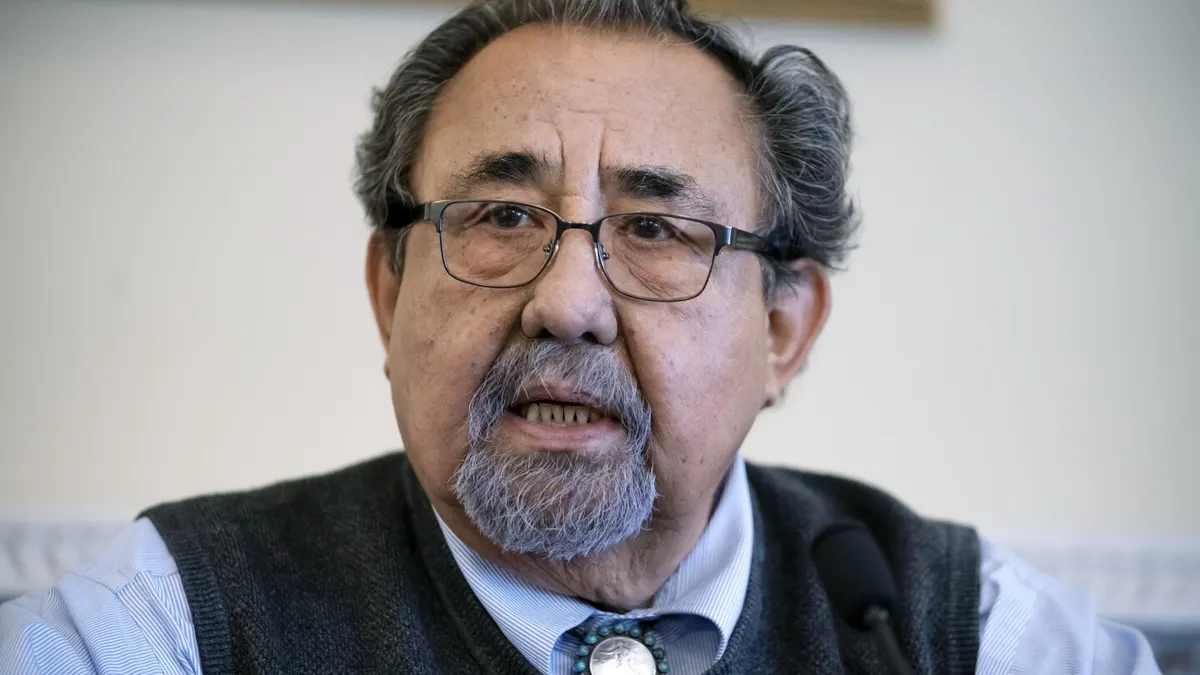
On Thursday, the political landscape lost a significant figure as Democratic Rep. Raúl M. Grijalva passed away at the age of 77 due to complications from cancer treatment. Grijalva, a champion of environmental protections and progressive ideals, served in Congress for two decades representing Southern Arizona. His leadership as the chair of the U.S. House Natural Resources Committee allowed him to play a pivotal role in shaping national environmental policies.
Grijalva was well-known for his staunch support of immigrants and Native American tribes, often lending his voice to the causes that mattered most to his community. He was also recognized for his distinctive fashion choice: the bolo tie, which he wore both in Tucson and at the Capitol in Washington, D.C. His office confirmed that Grijalva had been sidelined from Congress in recent months due to his ongoing treatment for cancer.
In a heartfelt statement, Grijalva’s office reflected on his legacy: “From permanently protecting the Grand Canyon for future generations to strengthening the Affordable Care Act, his proudest moments in Congress have always been guided by community voices.” This dedication was evident throughout his career as he fought tirelessly for the rights and well-being of his constituents.
The loss of Grijalva was felt deeply across the political spectrum. House Democratic leader Hakeem Jeffries remarked, “We have lost a giant.” He praised Grijalva's fierce representation of his community, emphasizing that Grijalva placed both his constituents and the climate at the forefront of his efforts.
First elected to the House in 2002, Grijalva, the son of a Mexican immigrant, quickly became known as a leading figure in the Congressional Progressive Caucus, a position he held for a decade. He dedicated much of his legislative career to environmental causes, such as securing water supplies for drought-stricken areas and advocating for the Land and Water Conservation Fund. These initiatives ensured the protection of natural areas and enhanced public recreational opportunities.
Earlier this year, Grijalva stepped down from his leadership role on the Natural Resources Committee, announcing his intention to retire rather than seek reelection in 2026. Despite his health challenges, he sought reelection in 2024 and won decisively in one of Arizona's most solidly Democratic districts. His passing leaves a vacancy that will be filled through a special election later this year.
The Democratic primary in Grijalva's district is expected to be highly competitive, drawing interest from various candidates including his daughter, Adelita Grijalva, a member of the Pima County Board of Supervisors, and Tucson Mayor Regina Romero, a longtime ally. This contest will likely reflect the ongoing ideological battle between Grijalva's progressive allies and a more moderate faction within the party.
Former Arizona Congressman Ruben Gallego honored Grijalva as not just a colleague, but a dear friend who served as a role model for many young Latinos in public service. “He spent his life as a voice for equality,” Gallego noted, highlighting Grijalva's commitment to social justice.
Additionally, Sen. Bernie Sanders praised Grijalva as “one of the most progressive members” of the House, noting his lifelong dedication to fighting for working families. “He will be sorely missed,” Sanders added, reinforcing Grijalva's essential role in advocating for the underrepresented.
Grijalva's journey began as a community organizer in Tucson, and he later served on the local school board and the Pima County Board of Supervisors before being elected to Congress. Throughout his life, he prided himself on representing the underdogs, those without a voice. His kind and humble nature made him approachable to all, and his office was known for its welcoming atmosphere.
His advocacy extended beyond environmental issues; he also played a crucial role in writing significant legislation, including the National Landscape Conservation System Act and the Federal Lands Restoration Act, both of which were signed into law by President Barack Obama. More recently, Grijalva led efforts to protect a new national monument near the Grand Canyon, aiming to shield the area from uranium mining and address the calls from Native American tribes for the preservation of their ancestral lands.
As colleagues and constituents remember Rep. Raúl M. Grijalva, they celebrate a legacy marked by unyielding dedication to environmental causes, social justice, and community empowerment. His contributions will resonate for generations to come, inspiring future leaders to continue the fight for equality and environmental stewardship.